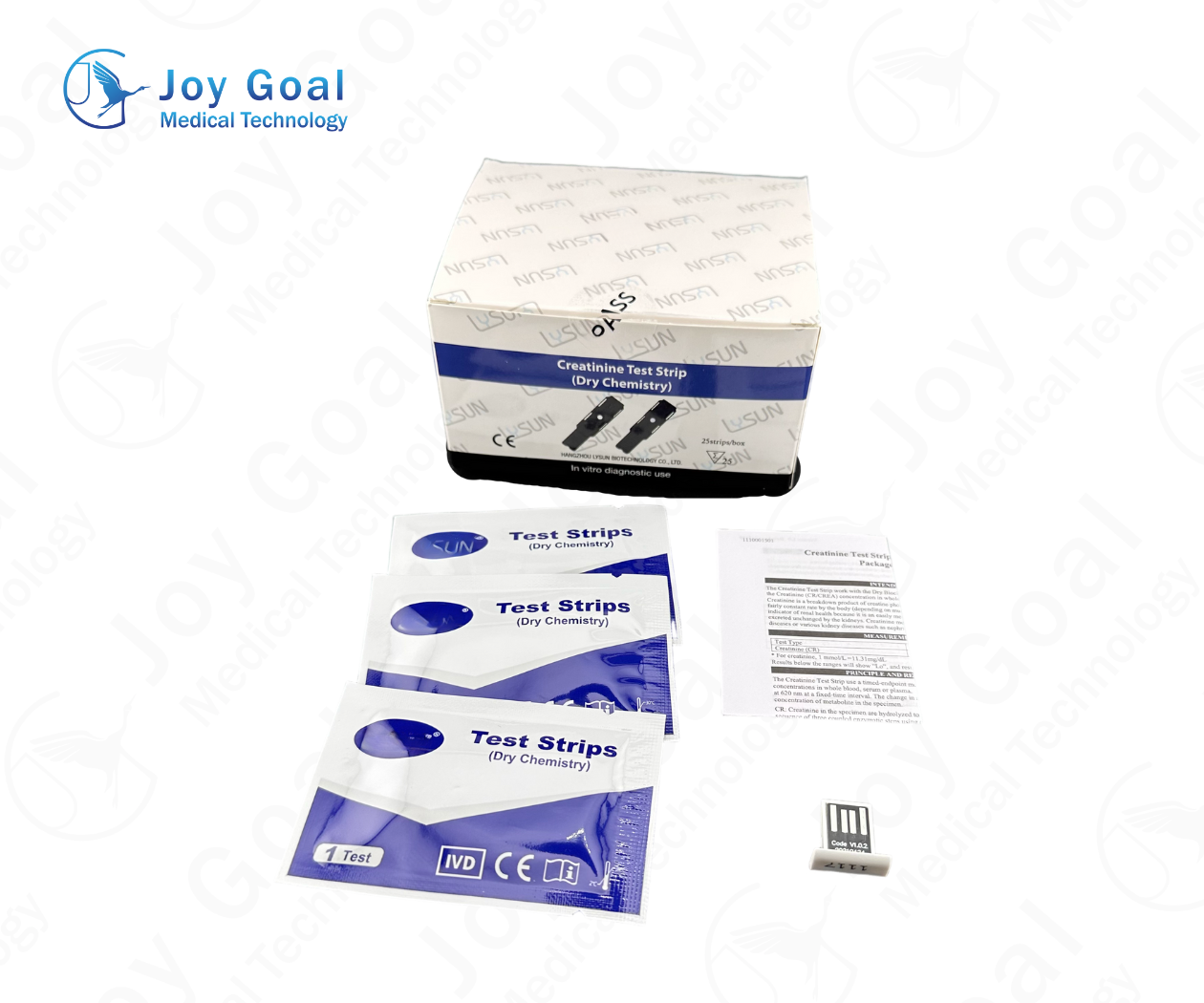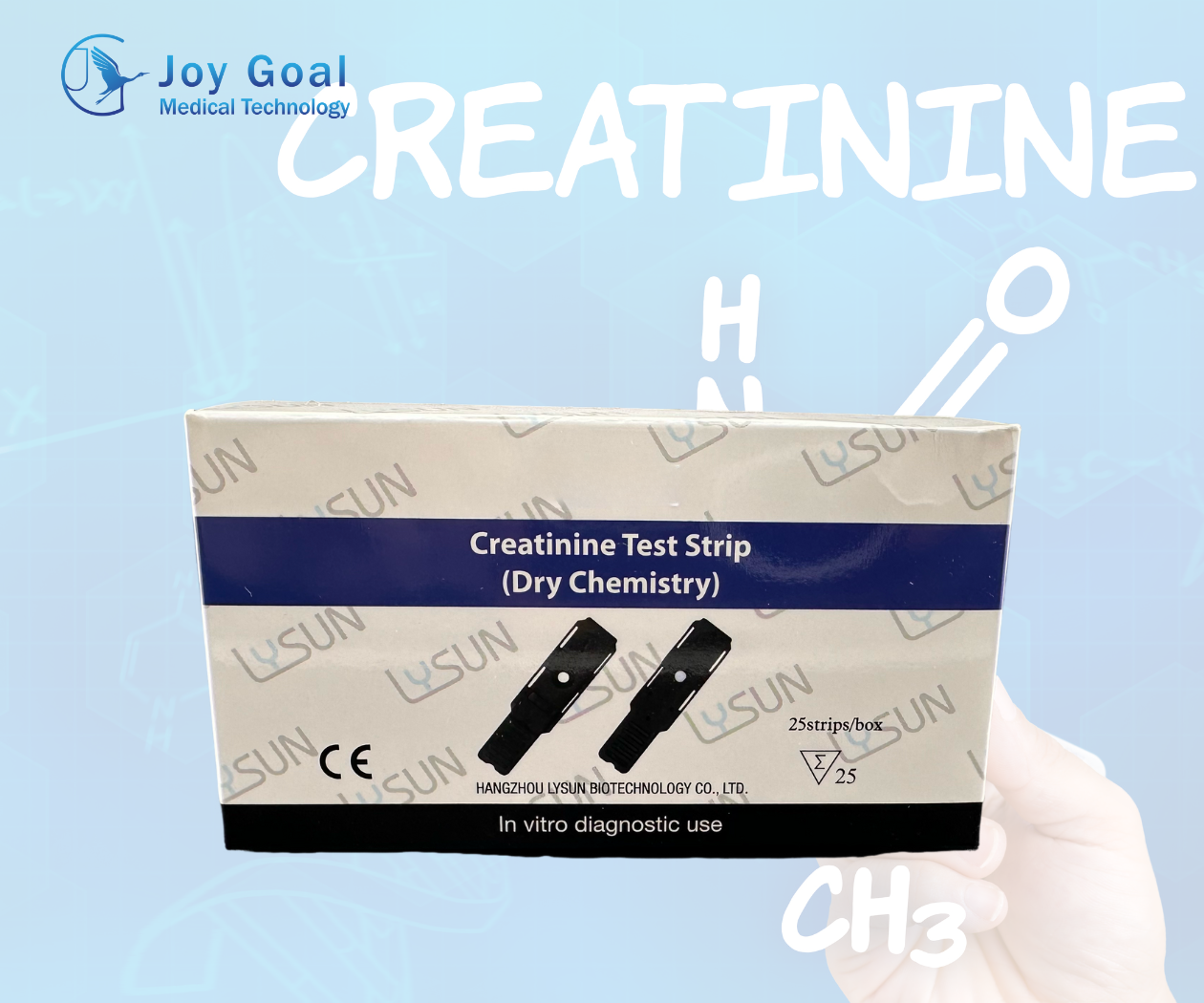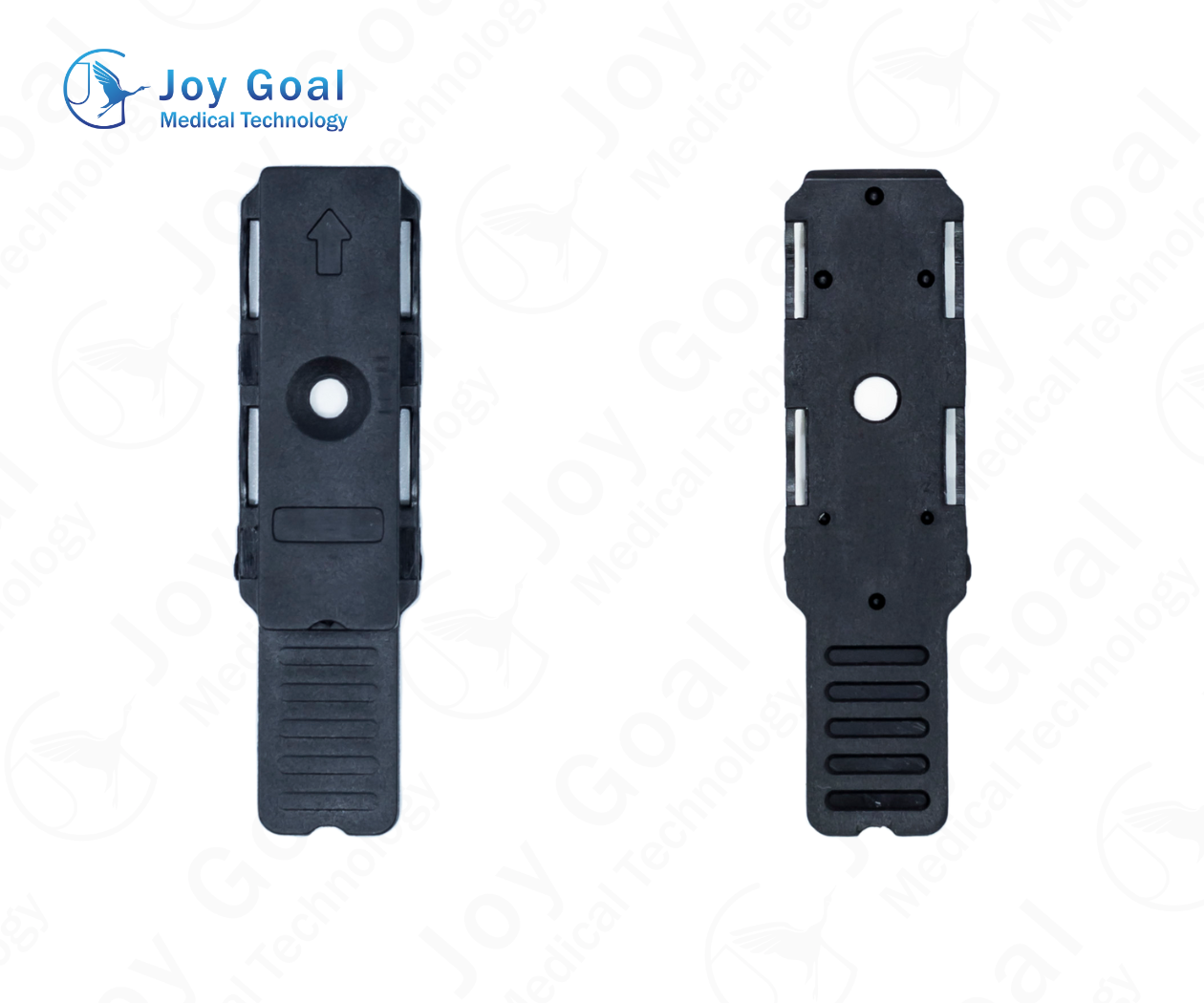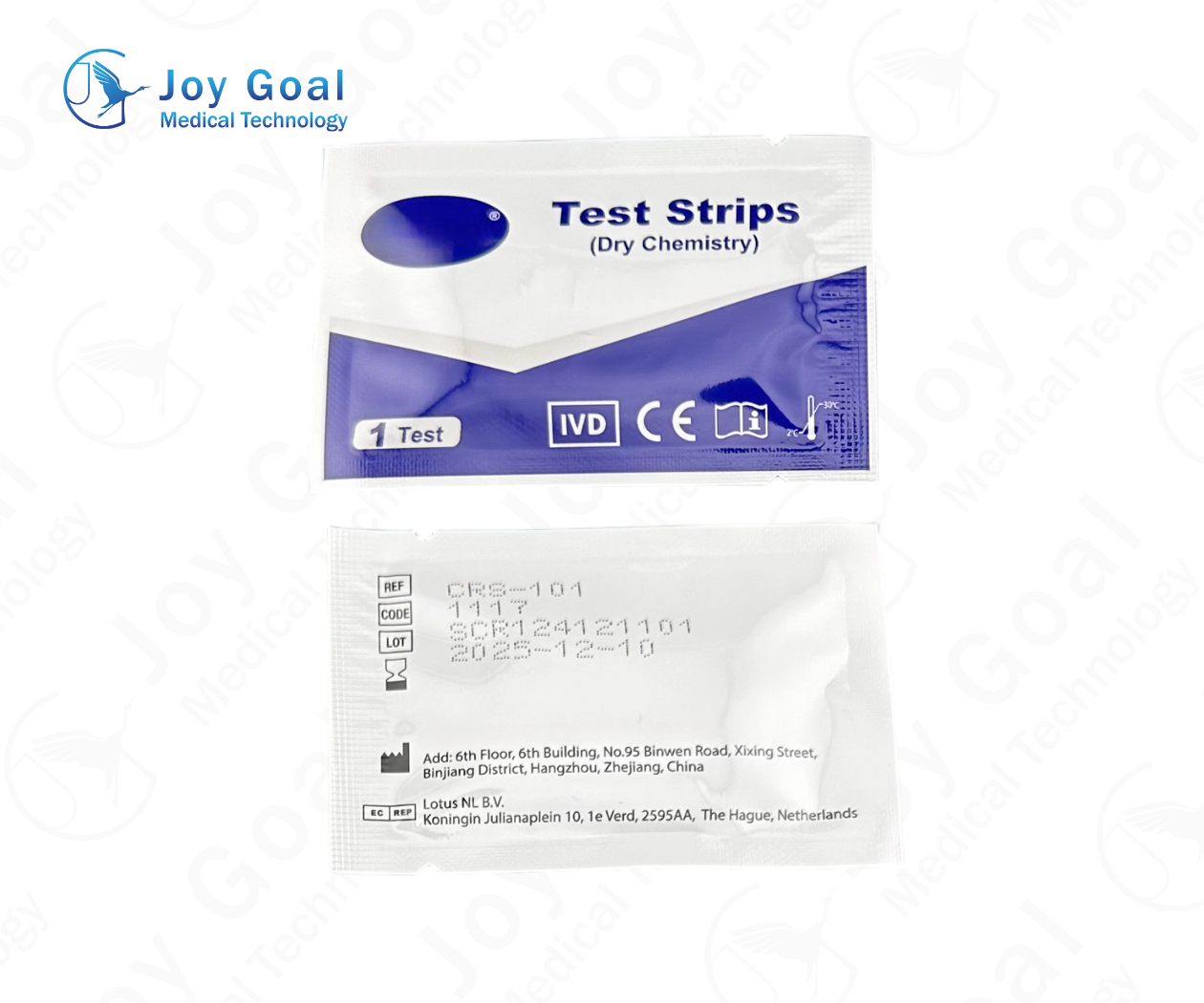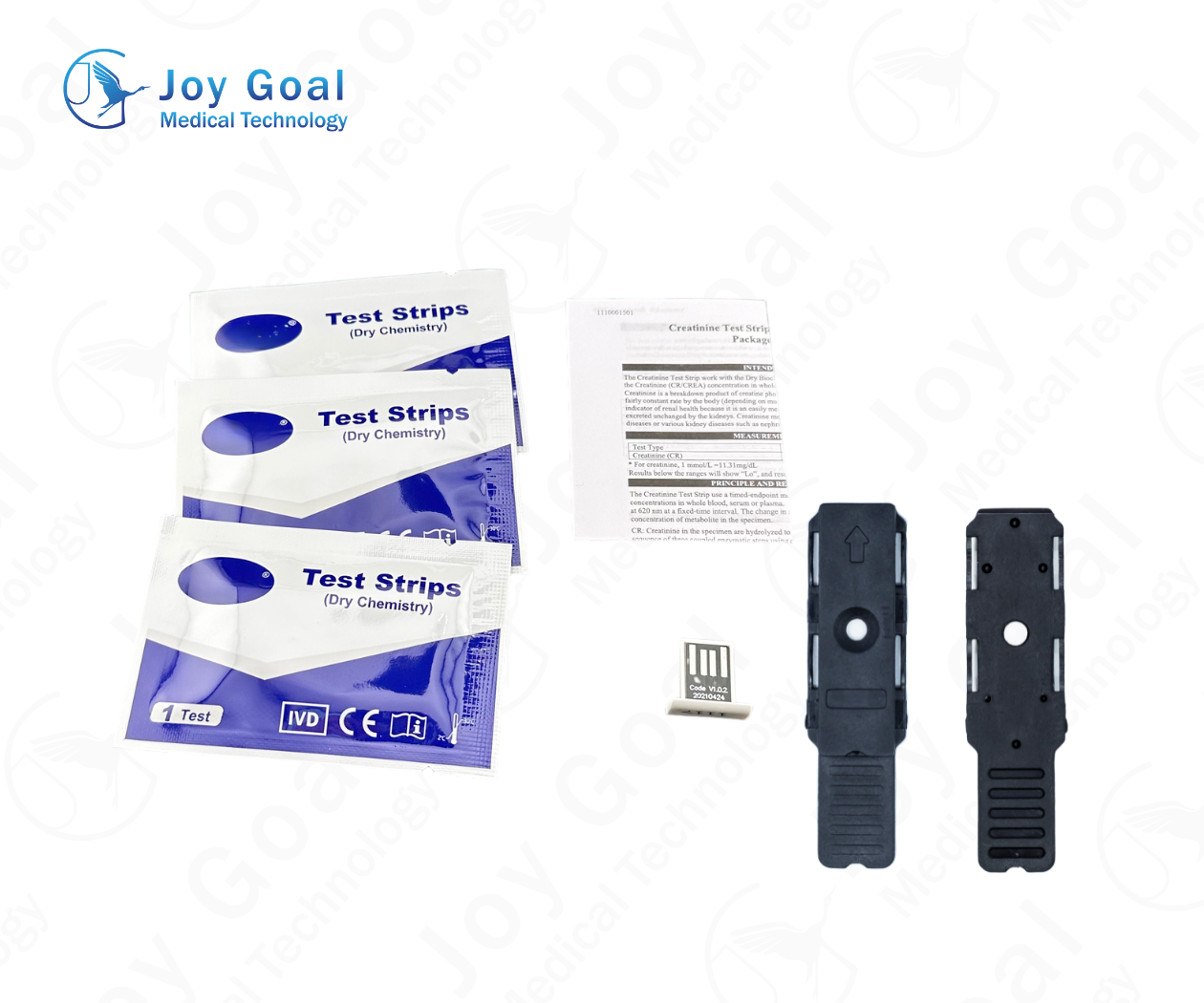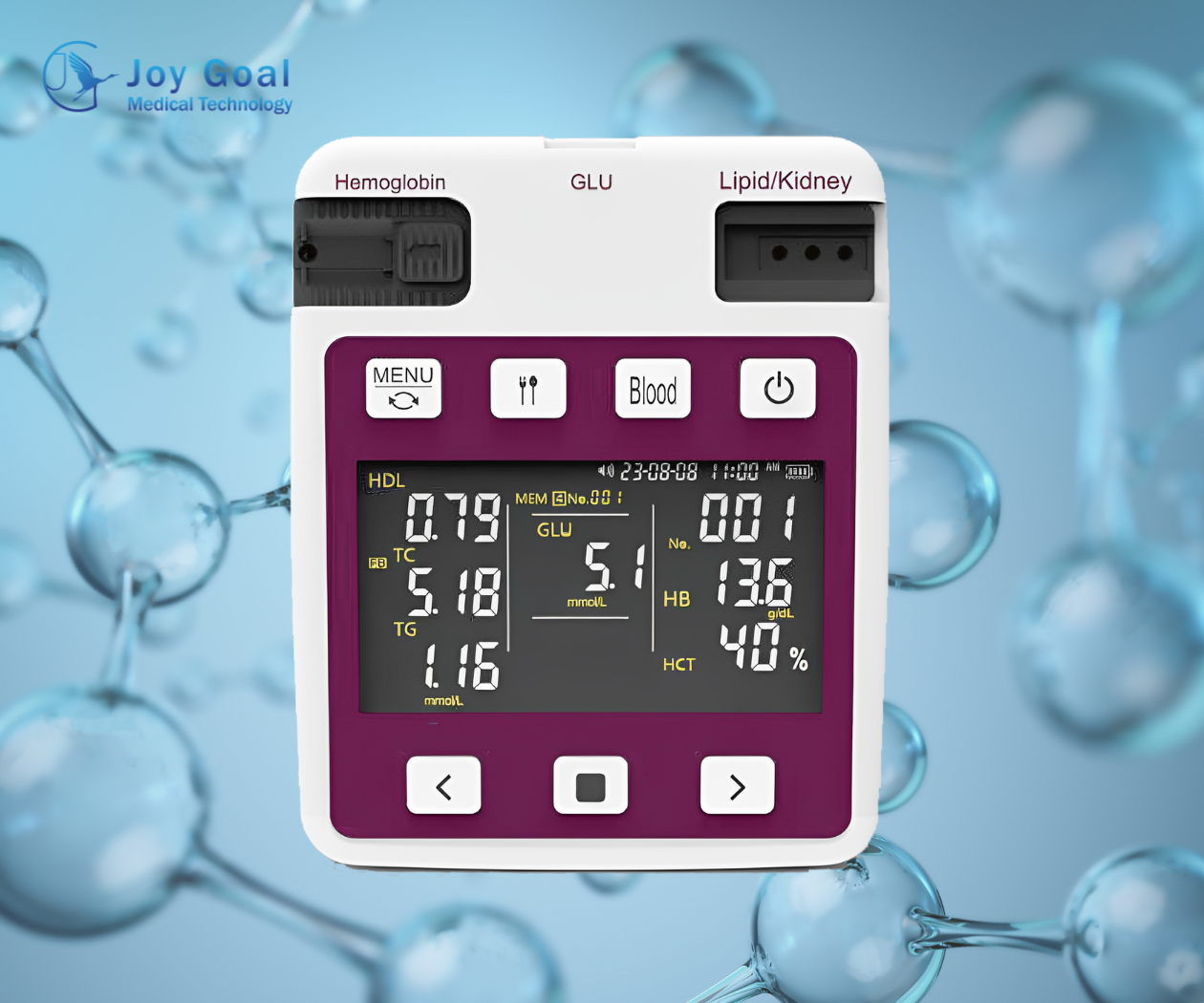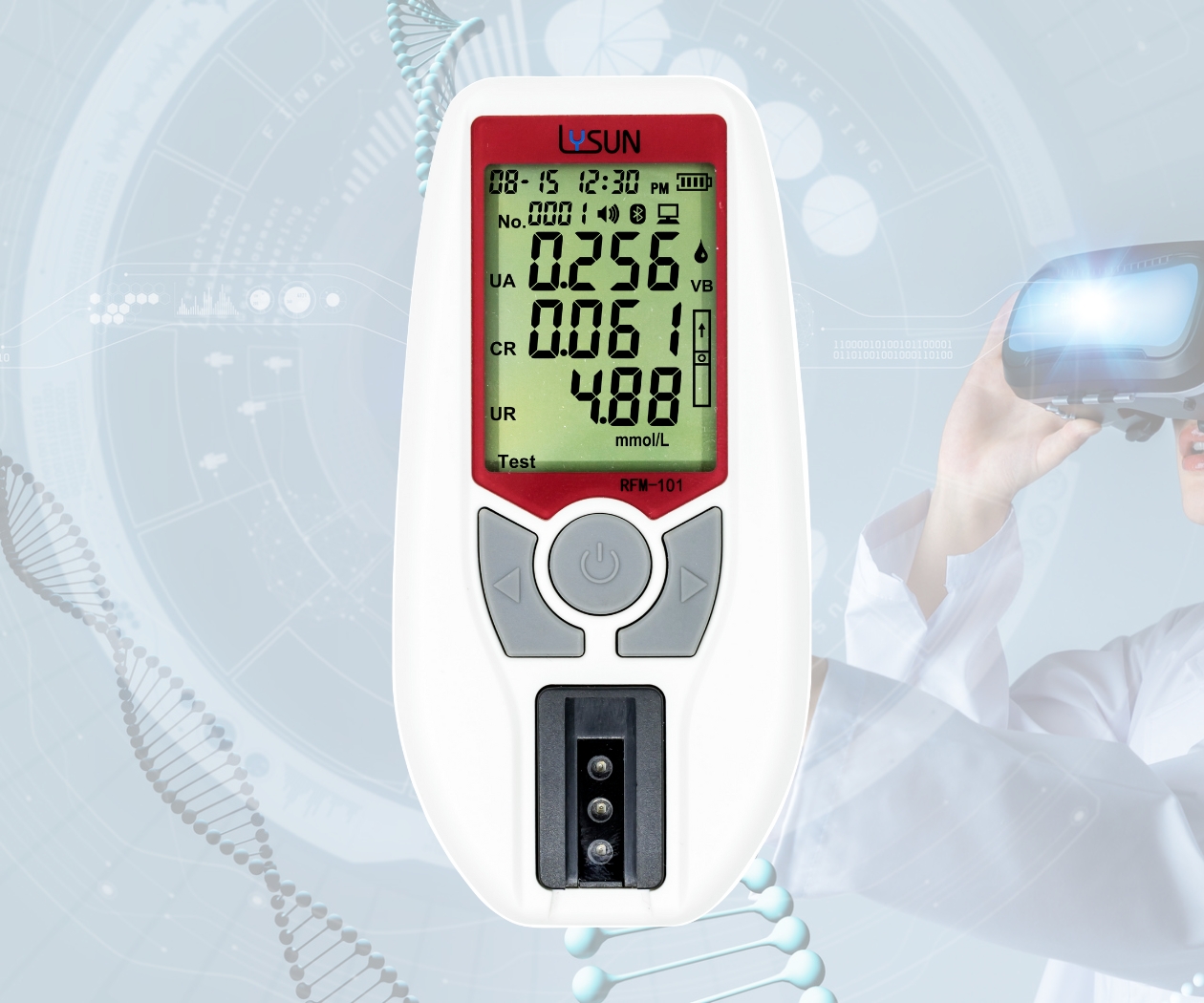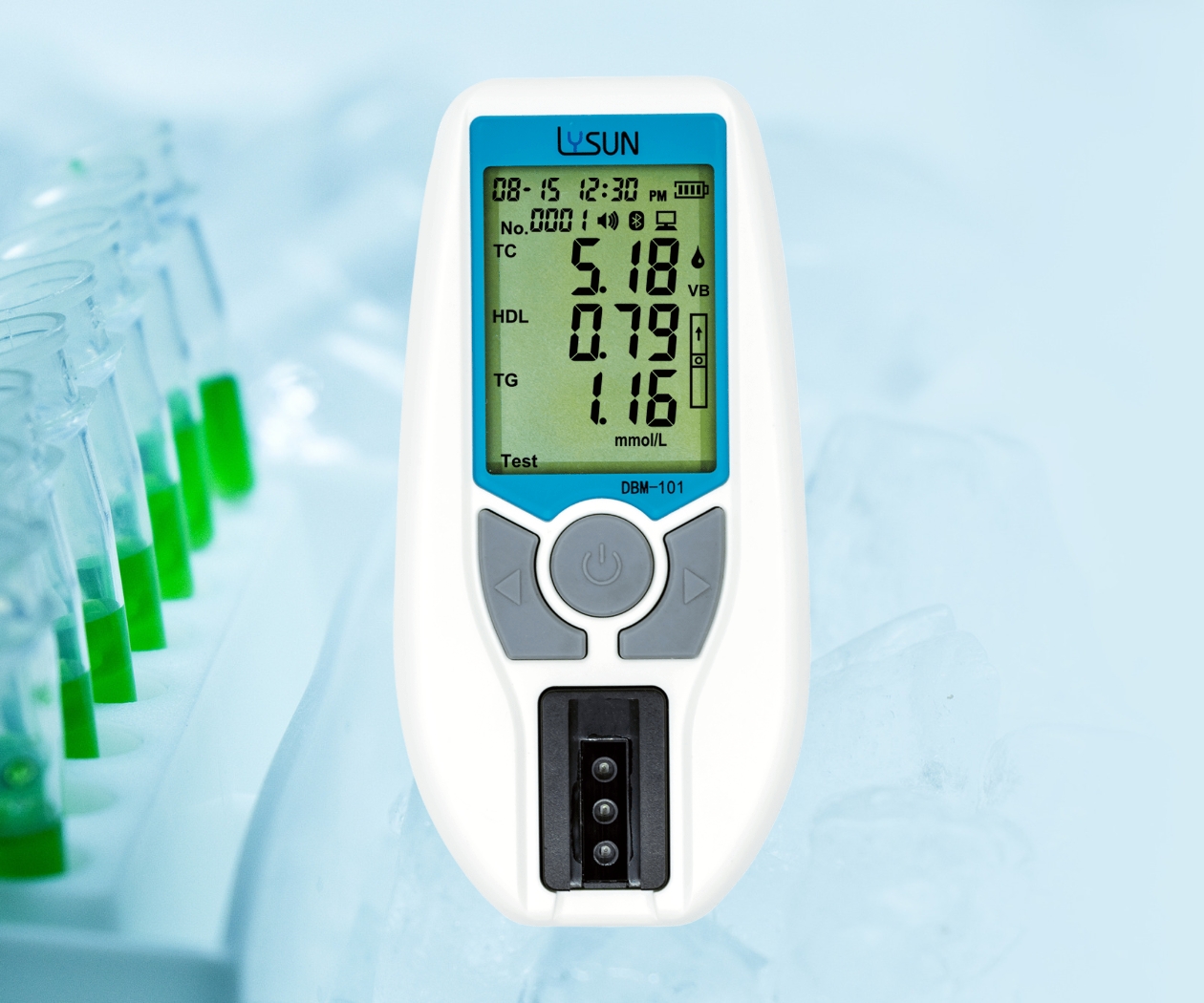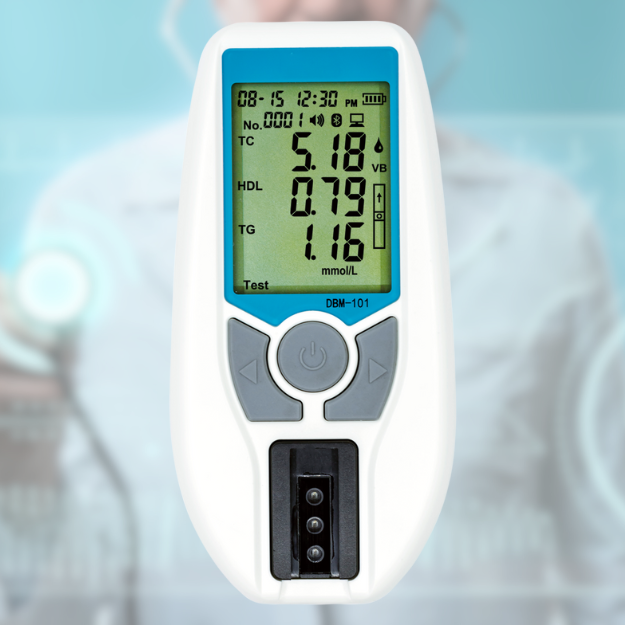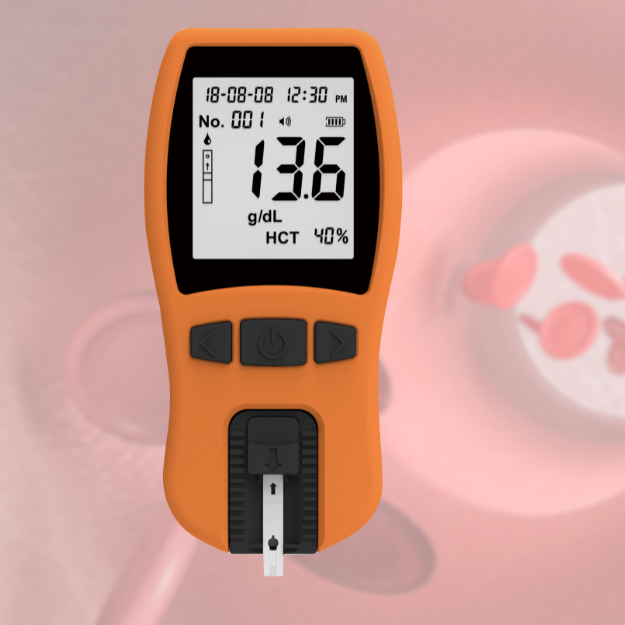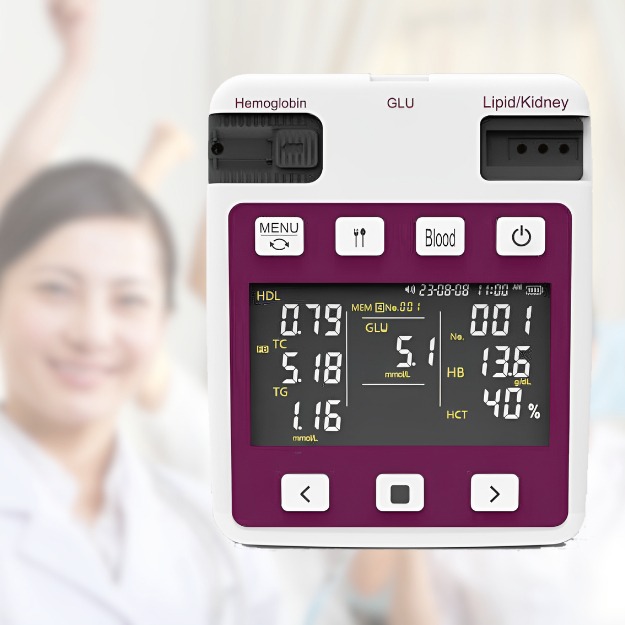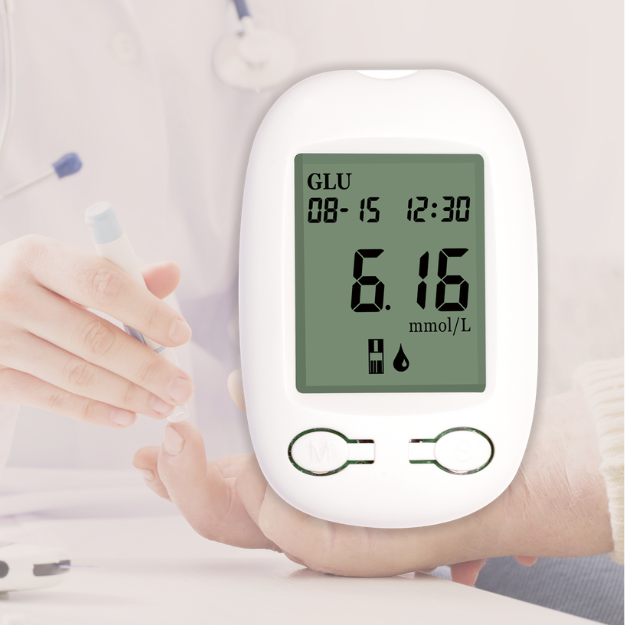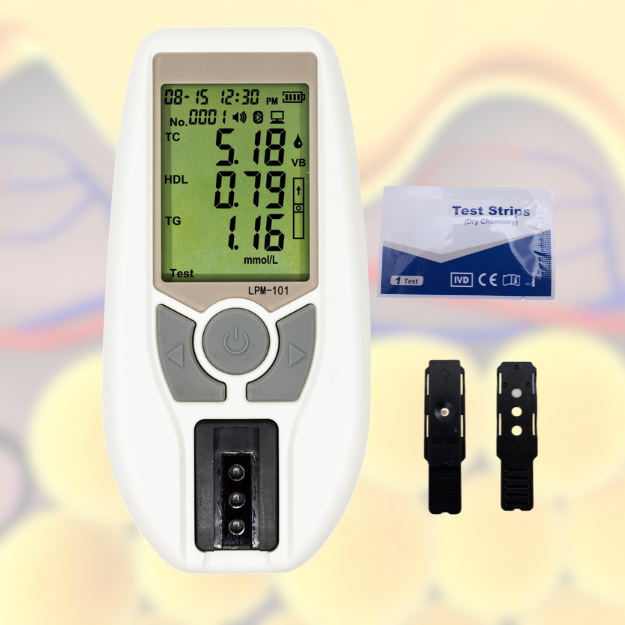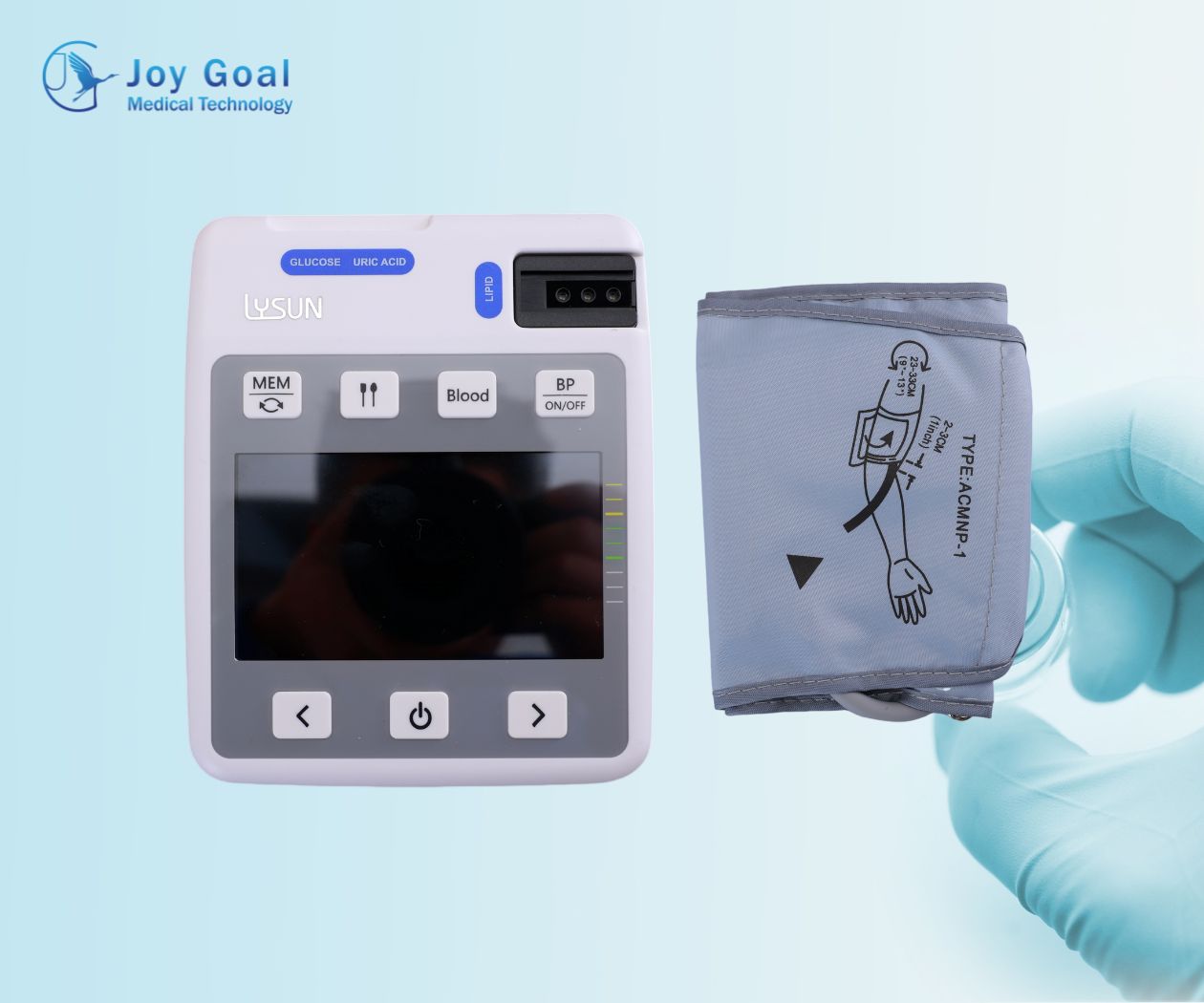Feature

Mirco specimen
10μL Blodd specimen

Wide Range
Maximum measurement range
in same function POCT meter

Accurate
Same level of accuracy with Biochemical Analyzer
The Creatinine Test Strips work with the Renal Function Analysis Meter or Dry Biochemical Analysis Meter or Multi-function Analyzer (hereinafter collectively referred to as analyzer) to measure the Creatinine (CR/CREA) concentration in whole blood, plasma and serum. For professional use.
Creatinine is an important indicator of renal health because it is an easily measured by product of muscle metabolism that is excreted unchanged by the kidneys. Creatinine measurements are used as an aid in the diagnosis muscle diseases or various kidney diseases such as nephritis and renal insufficiency.
PRINCIPLE
The Creatinine Test Strip uses a timed-endpoint method to measure the Creatinine(CR) concentrations in whole blood, serum or plasma. The system monitors the change in absorbance at 620 nm at a fixed- time interval. The change in absorbance is directly proportional to the concentration of metabolite in the specimen.
CR: Creatinine in the specimen are hydrolyzed to creatine by the action of creatininase. A sequence of three coupled enzymatic steps using creatinase, sarcosine oxidase, and peroxidase causes the oxidative coupling of 4-aminoantipyrine to form a blue dye.
Reference values are listed in the chart below:
Creatinine(CR): Men: 0.070~0.115 mmol/L (0.79~1.30 mg/dL)
Women: 0.044~0.080 mmol/L (0.50~0.90 mg/dL)
Specfication
| Feature | Specifications |
|---|---|
| Test Time | Creatinine (CR) ≤5 min; |
| Measurement Range | Creatinine (CR): 0.044~1.320 mmol/L (0.50~14.93 mg/dL) |
| Specimen Volume | 10 μL |
| Methodology | Reflectance Photometer |
| Specimen | Whole blood(peripheral and venous human whole blood), plasma and serum |
| Units of Measurement | mg/dL, mmol/L |
| Meter storage and transportationt conditions | 0 - 55°C; ≤90% RH |
| System Operating Conditions | 10 - 35°C; ≤80% RH; indoor only |
Accurate
Creatinine (CR)
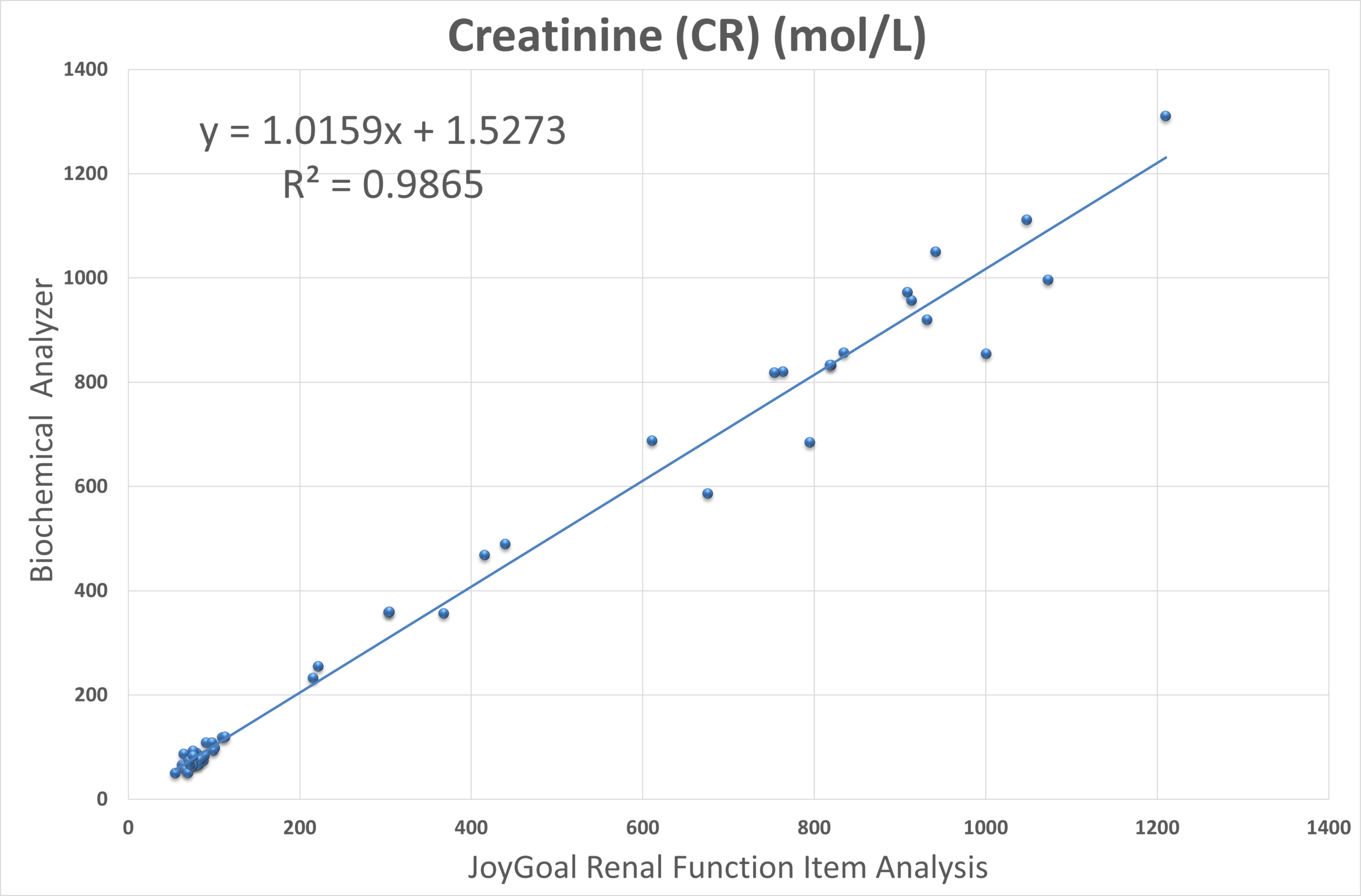
Procedure
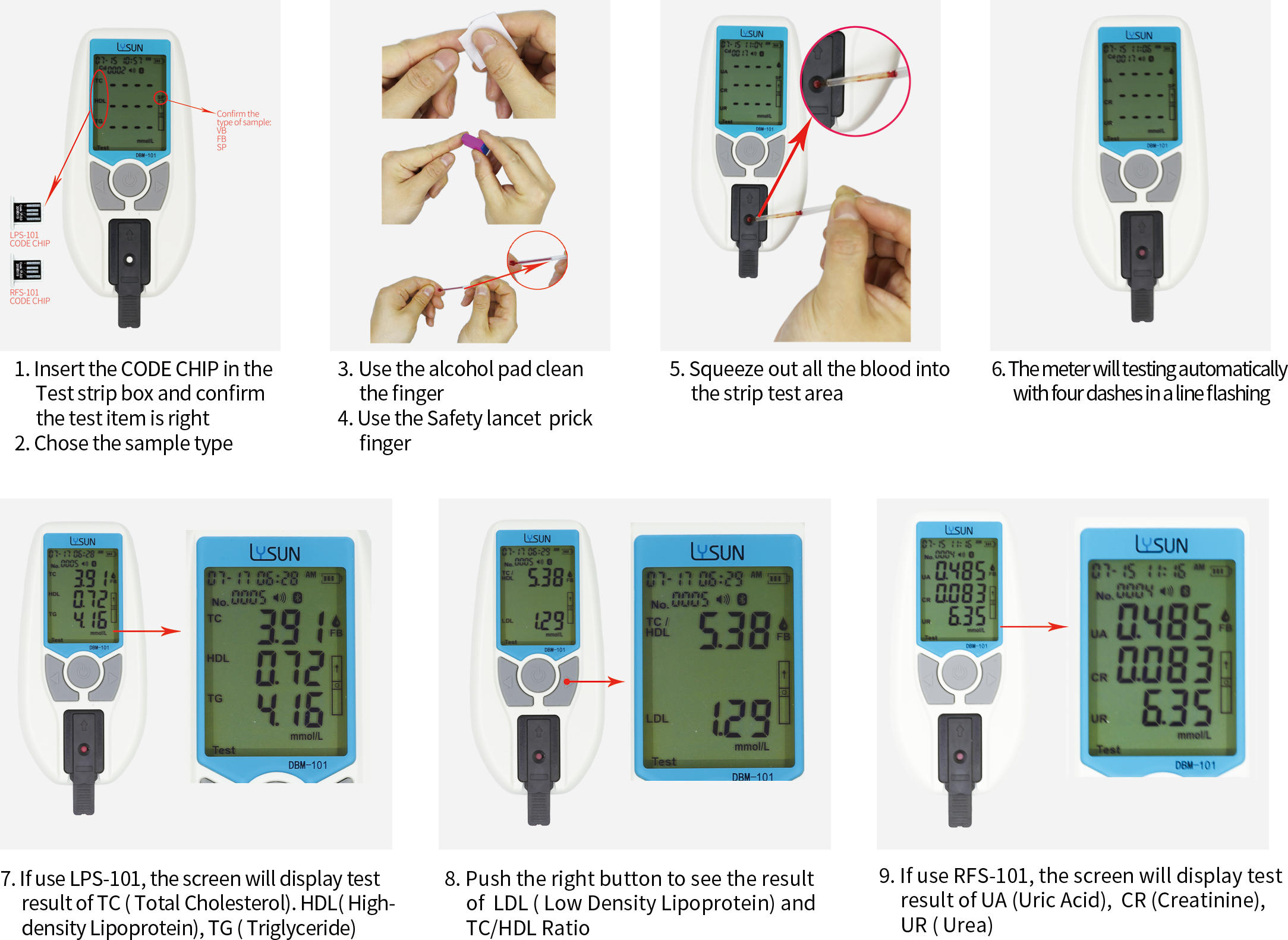
Packing
